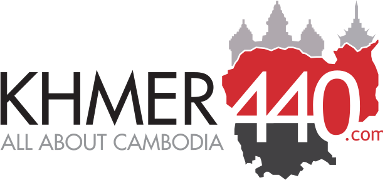Cambodia Teacher’s Diary
The least enjoyable classes to teach in Cambodia are often the last ones of the day. The students who sign up for evening classes often attend high school or university or work in offices all day. By the time they make it to English class, they’re often dead tired and, consequently, unresponsive. Add to this a work-weary, nerve-wracked, short-tempered teacher who has been at the school for ten hours and you have a recipe for boredom, frustration, and not infrequent outbursts of sheer anger and exasperation.
Last year, the listlessness, the inability to follow directions, and the refusal to take anything onboard of my evening classes used to drive me to the brink of raving madness. Nowadays, I have a lighter schedule, meaning I still feel fresh come seven o’clock, and I’m able maintain patience as well as a sense of humour. I’m also fortunate that my current evening lot arrive unexpectedly chipper, and they really seemed to hit it off on Day One, leading me to expect good things from them this term.
On Day Two, we start with an activity to introduce the topic of the unit. The topic of the first unit, in this case, is 19th Century Russian fiction [Note: Some details have been changed to preserve the anonymity of the author.] We kick off Day Two with quick warmer consisting of a few general questions related to the topic. Then the students crack their books for a short listening exercise in which they are asked for the answers to some gist questions.
The topic of the listening is, of course, almost exactly the same as their own conversation, and the recording is carefully scripted to expose them to upcoming grammar and vocabulary. They see some of it next, in the meat of the lesson, a short reading, accompanied by plenty of pictures, about Dostoevsky, Tolstoy, Gogol, and Lermontov. The real purpose of the reading is to present a range of vocabulary related to literary genres and conventions. The students see such words as ‘epic’, ‘tragedy,’ ‘romance,’ and ‘historical novel.’ Finally, we take a few minutes to go over any unfamiliar words.
The last part of the lesson focuses on the discussion questions following the reading. These questions encourage students to utilise the new vocabulary. But if the point were just to practice the vocabulary, the exercise would only last for a matter of minutes. Several of the questions are of a more general nature, and before starting we brainstorm a few more on the whiteboard, and this should allow them to set off on a wide-ranging discussion within the parameters of the topic and with some new vocabulary.
The lesson goes well. But it is a pretty soft lesson. Each lesson should have specific objectives. This one?s objectives are probably something like ‘To introduce the topic of 19th Century Russian fiction,’ ‘To introduce and practice vocabulary related to the unit’s topic,’ and ‘To practice speaking using this new vocabulary in the context of the unit’s topic.’ If the students are still sizing me up, they probably don’t have much to go on after this lesson. They have fairly conventional learning styles. They like rules, grammar, handouts, and fun activities. This was a lot of speaking. The deciding test will come with the first grammar lesson. Which happens to be on Day Three.
At the end of class, some of my old students are waiting outside. I’ve known them all for several months, and we have a great rapport. They tell me about the others in the class, give me their first impressions of their new teacher, and ask me why I’m not teaching their level this term. Once you’ve reached this stage with students, teaching doesn’t even feel like work. It will take a couple of weeks, assuming everything goes well, before I reach that stage with this new lot.
Terry Avon



